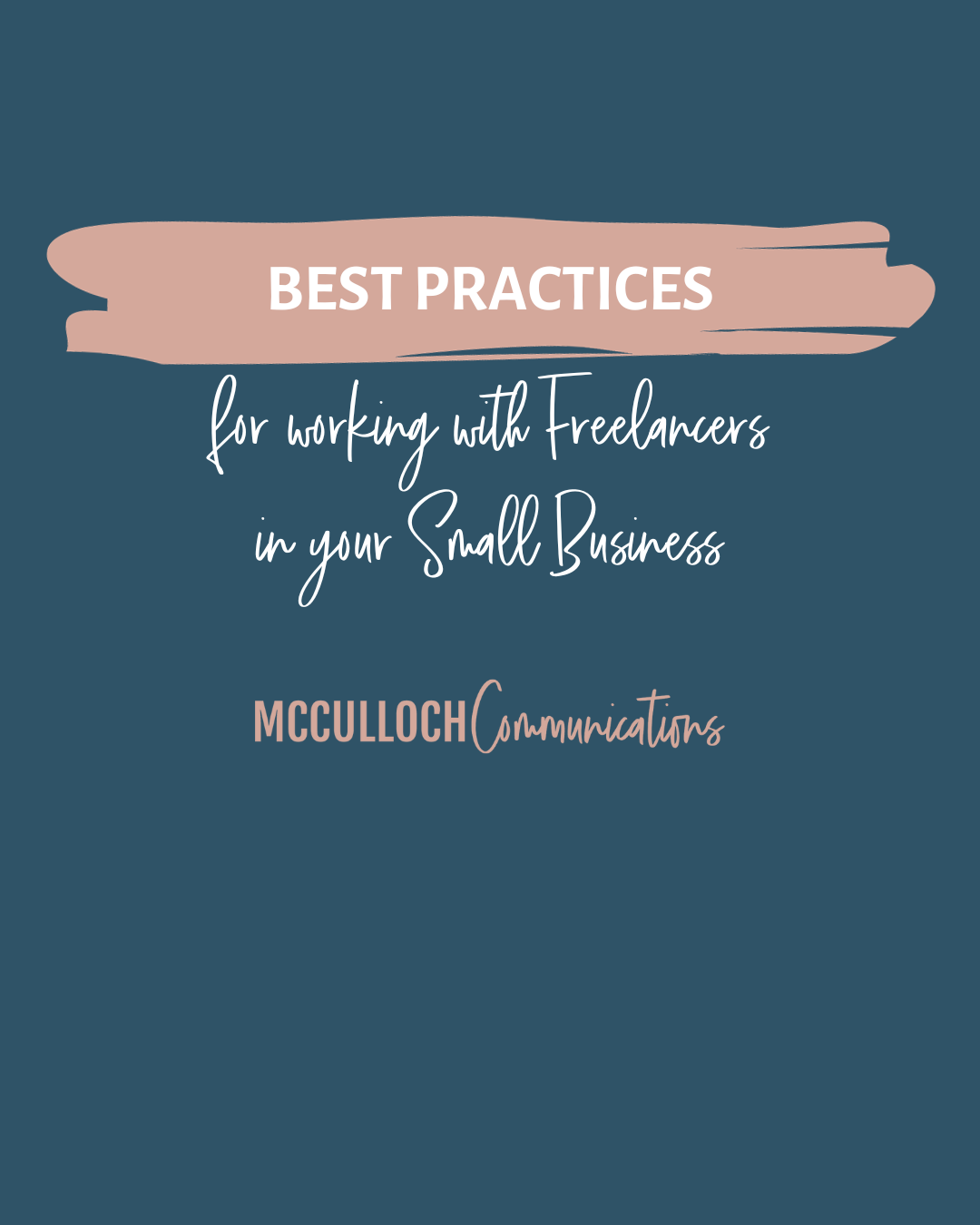Best Practices for Working with Freelancers

Working with freelancers can be a HUGE help when it comes to outsourcing your workload, but if handled poorly, the whole experience can be a disaster. There are a lot of do’s and don’ts when it comes to best practices of working with a freelancer – some of them are guidelines, others are legal rules – and having an understanding of them BEFORE you start your outsourcing journey is probably best if you want the experience to be successful. It will save you a lot of time, money, and headache, trust me!
Negotiate Before Working
I know, you want to hire a freelancer and get to work immediately to start fixing all your problems. As great as that sounds, the last thing you want is to have any sort of confusion about expectations after the work has been completed.
You should always talk about budget and rates before any sort of work begins. You should also negotiate task ownership in advance (who owns the work once it’s complete? You or them?). And don’t forget privacy expectations, nondisclosure agreements, and whether or not you are ok with them communicating directly with your clients (before or after the project is complete).
Some of these things seem small, others seem like a given, but you never want to assume ANYTHING. The sooner you bring these things up, the easier they are to talk about. And if you can’t come to a mutual agreement, you can spend your time finding someone who can.
Get it in Writing
If you’re going to work with a freelancer, you NEED a contract. This contract will include everything listed above, plus an agreement on the type of work the freelancer will be doing and for how long. Get everything in writing, and make sure it’s signed by both parties. This way, if there’s ever a disagreement or misunderstanding, you can go back to the contract. And legally, both of you are covered.
Don’t Mess with Money
Show thanks and pay on time. Do not delay taking care of their invoices. Messing with money in any way is the fastest way to ruin your relationship with a perfectly good freelancer. If you don’t like their work, pay them for what they’ve done and let them go. Think about the reputation you want to have and act accordingly.
Have a Digital Security & Transition Plan
I’m pretty sure I still have admin access to every Facebook account for every client I’ve ever had..and that’s not a good thing! I should have been removed as admin from their pages and passwords should have been changed, etc. You need to have a plan for giving and removing access to your accounts before you hire someone.
First, determine what the freelancer actually need access to. Don’t be willy-nilly about it, because an email password is like the key to the kingdom. If it’s possible to set them up as a user attached to your account, that’s usually preferred. But if you need them to access your account directly, make sure the password is unique so they can’t access anything else.
Once their contract is up, make sure you remove access, deactivate their user account, and change your passwords. This isn’t rude, it’s protecting your business and financial information. Any professional freelancer won’t just understand, they’ll commend you for it.
Reinforce Flexibility
Flexibility is paramount when it comes to working with a freelancer. By law, you cannot tell them when or how to work – otherwise, they’d be considered an employee, which is very different from a legal standpoint. You should treat them more like a partner than an employee.
You can set deadlines, but you cannot tell them what hours to work. A freelancer sets their own schedule. If they want to do the work at 2am, that is their prerogative. They may choose to work the same hours every day and communicate that with you, but you cannot mandate it for them (or get upset if they change it).
Similarly, you can assign work, but you can’t tell them how to do it. The point of hiring a freelancer is that they already have the skills to implement the work you need done. When you train them, it’s more about making sure they know where to find things as opposed to how to execute something step by step. If they ask you to get specific, you can do so, but you cannot force them to do anything a particular way.
Just remember, a freelancer isn’t you. They’re not going to do things the exact same way you do, and you have to be ok with that! You are legally not allowed to micromanage a freelancer, and I think that’s a good thing! It will allow you to actually outsource your work, and it will help you grow on a personal level too.
Did I miss anything? What other recommendations do you have for people who want to work with freelancers? Let me know your thoughts!
Leave a Reply Cancel reply
About Maya
Lorem ipsum dolor amet mumblecore stumptown meggings, poutine quinoa brunch waistcoat fashion axe paleo williamsburg.
About Amber
With over 15 years of experience, I've worked with countless small businesses just like yours. I can provide you with the tools and resources that will help make marketing less overwhelming.